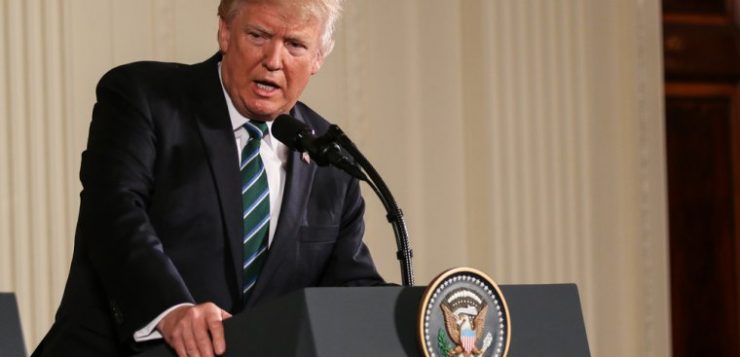President Donald Trump has ordered the U.S. Attorney General to develop a Department of Justice task force on market integrity and consumer fraud that would include crimes involving cryptocurrencies.
The executive order specifically mentions digital currency as an area to be investigated and, where necessary, prosecuted. The task force replaces the Financial Fraud Enforcement Task Force that was created on Nov. 17, 2009.
The task force will be chaired by the Deputy Attorney General. Other members will include: the Associate Attorney General; assistant attorneys general of the criminal, civil, tax and antitrust divisions; the director of the Federal Bureau of Investigation; U.S. attorneys assigned by the Attorney General; and other Justice Department officers or employees designated by the Attorney General.
The Deputy Attorney General will convene the task force as deemed appropriate and will invite representatives from other federal departments.
The task force will provide guidance for investigating and prosecuting cases concerning financial markets, consumers and government fraud. It will also give recommendations to strengthen cooperation among government agencies – at all levels of government – to investigate and prosecute fraud and other financial crimes.
U.S. Joins Global Initiative
The U.S. has, meanwhile, joined global efforts to fight transnational financial crimes that include cryptocurrency. On July 3, the U.S. and the United Kingdom joined the Joint Chiefs of Global Tax Enforcement. The U.S. Internal Revenue Service Criminal Investigation and the U.K.’s HM Revenue & Customs joined the group, which includes the Australian Criminal Intelligence Commission and Australian Taxation Office, the Canada Revenue Agency, the Fiscale Inlichtingen- en Opsporingsdienst in the Netherlands.
New Task Force Supplements SEC
The U.S. Securities and Exchange Commission (SEC), the U.S. securities regulator, has already taken an aggressive stance on cryptocurrency exchanges for alleged violations of federal laws governing securities trading. On March 7, the SEC said cryptocurrency exchanges listing ICO tokens that the agency considers securities are “potentially unlawful.”
The Financial Crimes Enforcement Network (FinCEN) also announced in March that cryptocurrency exchanges are money service businesses and shall be regulated under Bank Secrecy Laws (BSA). Hence, cryptocurrency exchanges must go through MSB registration with the FinCEN.
Read more at: CCN







